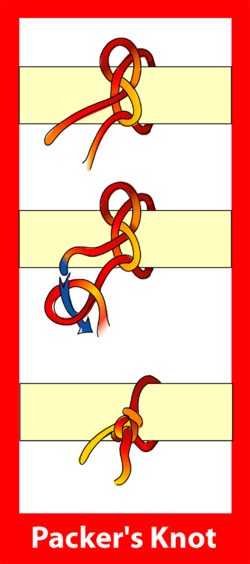Difference between revisions of "Translations:AY Honors/Knot/Packer's/2/es"
From Pathfinder Wiki
(Created page with "</noinclude> {{Knot/es | name=Nudo empacador | image= Packers knot.png | use = El '''nudo empacador''' es un nudo de enlace que se usa generalmente en cuerdas más pequeñas....") |
|||
| (2 intermediate revisions by 2 users not shown) | |||
| Line 1: | Line 1: | ||
</noinclude> | </noinclude> | ||
{{Knot/es | {{Knot/es | ||
| − | | name=Nudo | + | | name=Nudo empaquetador |
| image= Packers knot.png | | image= Packers knot.png | ||
| use = El '''nudo empacador''' es un nudo de enlace que se usa generalmente en cuerdas más pequeñas. Este nudo se usa a veces para embalar y atar paquetes. | | use = El '''nudo empacador''' es un nudo de enlace que se usa generalmente en cuerdas más pequeñas. Este nudo se usa a veces para embalar y atar paquetes. | ||
| Line 9: | Line 9: | ||
# Apriete. | # Apriete. | ||
}} | }} | ||
| + | <noinclude> | ||
Latest revision as of 19:42, 25 July 2022
| Nudo empaquetador |
|---|
|
Uso: El nudo empacador es un nudo de enlace que se usa generalmente en cuerdas más pequeñas. Este nudo se usa a veces para embalar y atar paquetes.
Cómo amarrar:
|

